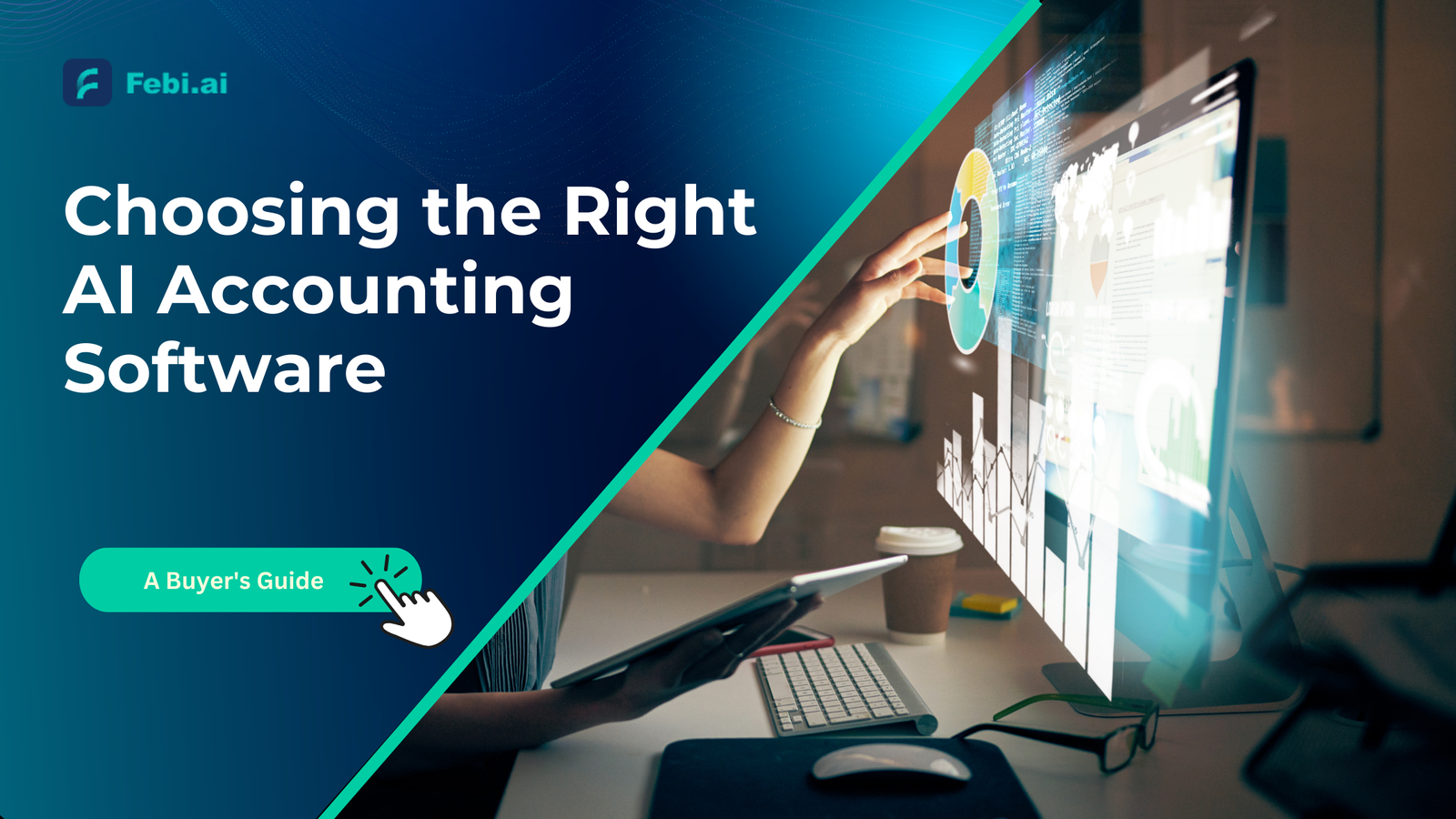In today’s competitive market, businesses are increasingly turning to AI accounting software to streamline their financial processes, improve accuracy, and gain actionable insights. AI-powered accounting tools can automate repetitive tasks, forecast financial trends, and provide real-time data analysis, making them invaluable for small to large enterprises alike. However, with a multitude of options available, selecting the right AI accounting software can be overwhelming. This guide will walk you through the essential factors to consider when choosing AI accounting software that fits your business needs.
1. Identify Your Business Needs and Goals
Before diving into the features of AI accounting software, start by outlining your business’s specific accounting needs and goals. Some questions to consider include:
- What are the core accounting tasks you need to automate?
- Are you looking for insights into cash flow, expenses, or profitability?
- Do you need industry-specific features or integrations?
Understanding your goals will help you select software that aligns with your objectives. For instance, a small business might focus on basic automation and reporting, while a larger organization may prioritize advanced analytics and data security.
2. Look for Key Features in AI Accounting Software
The next step in your selection process is to identify essential features that align with your business operations. Here are some must-have features in AI accounting software:
a) Automated Data Entry and Categorization
AI-powered systems can automatically capture and categorize transaction data, saving hours of manual entry and reducing the risk of human error. Look for software that integrates with your bank and invoicing system to pull in data automatically, and ensure it has intelligent categorization capabilities that align with your expense tracking needs.
b) Real-Time Reporting and Financial Dashboards
Real-time insights are crucial for making informed decisions. Look for AI accounting software that offers customizable dashboards and real-time reporting features. These should include metrics like cash flow, revenue, expenses, and profitability, presented in easy-to-understand visuals.
c) Predictive Analytics for Cash Flow Management
One of the most powerful benefits of AI is predictive analytics, which uses historical data to forecast future financial trends. Software with predictive analytics can help you anticipate cash flow issues, budget for upcoming expenses, and even forecast revenue growth. This feature is particularly valuable for businesses with seasonal fluctuations or growth ambitions.
d) Advanced Security and Compliance Measures
Data security is essential when dealing with sensitive financial information. Ensure the software offers advanced security features, such as multi-factor authentication, encryption, and role-based access controls. If your business operates in a regulated industry, confirm that the software complies with relevant standards, like GDPR or SOC 2, to protect customer and company data.
e) Integration with Existing Business Tools
The right AI accounting software should easily integrate with your existing tech stack, including CRMs, inventory management systems, e-commerce platforms, and banking APIs. Integrations streamline workflows, reduce data discrepancies, and ensure a smooth flow of information across platforms.
3. Choose a User-Friendly Interface
AI accounting software is designed to save time and enhance efficiency, so it should be user-friendly for everyone involved in the accounting process. A complex or difficult-to-navigate interface can hinder productivity, while an intuitive interface helps teams quickly adapt to new tools and leverage them effectively.
When evaluating software, consider features like:
- Ease of Navigation: Can users easily access key features without extensive training?
- Mobile Compatibility: Does the software offer a mobile app for on-the-go access to financial data?
- Customizable Dashboards: Can users customize the dashboard to focus on relevant metrics?
An interface that balances functionality with simplicity can significantly reduce the learning curve and increase team adoption rates.
4. Evaluate Scalability and Flexibility
As your business grows, your accounting needs may evolve. The AI accounting software you choose should be able to scale with your business without requiring frequent changes to your accounting processes or data migration.
Look for software that offers flexibility in terms of:
- User Licenses: Can you add more users as your team grows?
- Features and Integrations: Does the software offer advanced features or integrations that can be added as needed?
- Storage Capacity: Does the platform allow for an increase in data storage as your transaction volume increases?
Selecting a scalable solution helps avoid the cost and complexity of switching software down the road.
5. Compare Pricing Plans
AI accounting software comes in a variety of pricing structures, ranging from monthly subscriptions to annual plans with tiered features. It’s essential to consider your budget and find software that offers the best value for your needs. Some common pricing structures include:
- Freemium Models: Basic features are free, with premium features available at a cost.
- Monthly or Annual Subscriptions: These plans often provide a discount for annual billing and offer various feature levels.
- Pay-Per-Use Plans: Ideal for businesses with fluctuating usage needs, paying only for the features used.
Make sure to calculate both the upfront and long-term costs of the software, including setup, training, and potential upgrades.
6. Assess Customer Support and Training Resources
Reliable customer support is essential, especially when implementing new software. Look for providers that offer robust support options, such as live chat, phone support, and email. Check if they have an extensive knowledge base, video tutorials, or a community forum to answer common questions.
Training resources are also valuable, as they can help your team get up to speed quickly and maximize the benefits of the software. Some vendors offer webinars, one-on-one training sessions, or guided setup processes. The right support can make a big difference in your team’s ability to adopt and utilize the software effectively.
7. Request a Trial or Demo
Before making a final decision, it’s beneficial to try out the software. Many providers offer free trials or live demos, giving you hands-on experience with the platform’s features, interface, and usability.
During the trial, involve team members who will be using the software daily to ensure it meets everyone’s needs. Use this time to test integrations, explore reporting features, and evaluate ease of use. A trial period provides valuable insights that can confirm whether the software is a good fit.
Conclusion
Selecting the right AI accounting software Febi.ai is a significant decision that can impact your business’s efficiency, financial insights, and overall growth potential. By carefully evaluating your business needs, assessing essential features, ensuring ease of use, and comparing pricing, you can find software that meets your requirements both now and in the future



